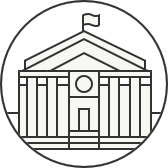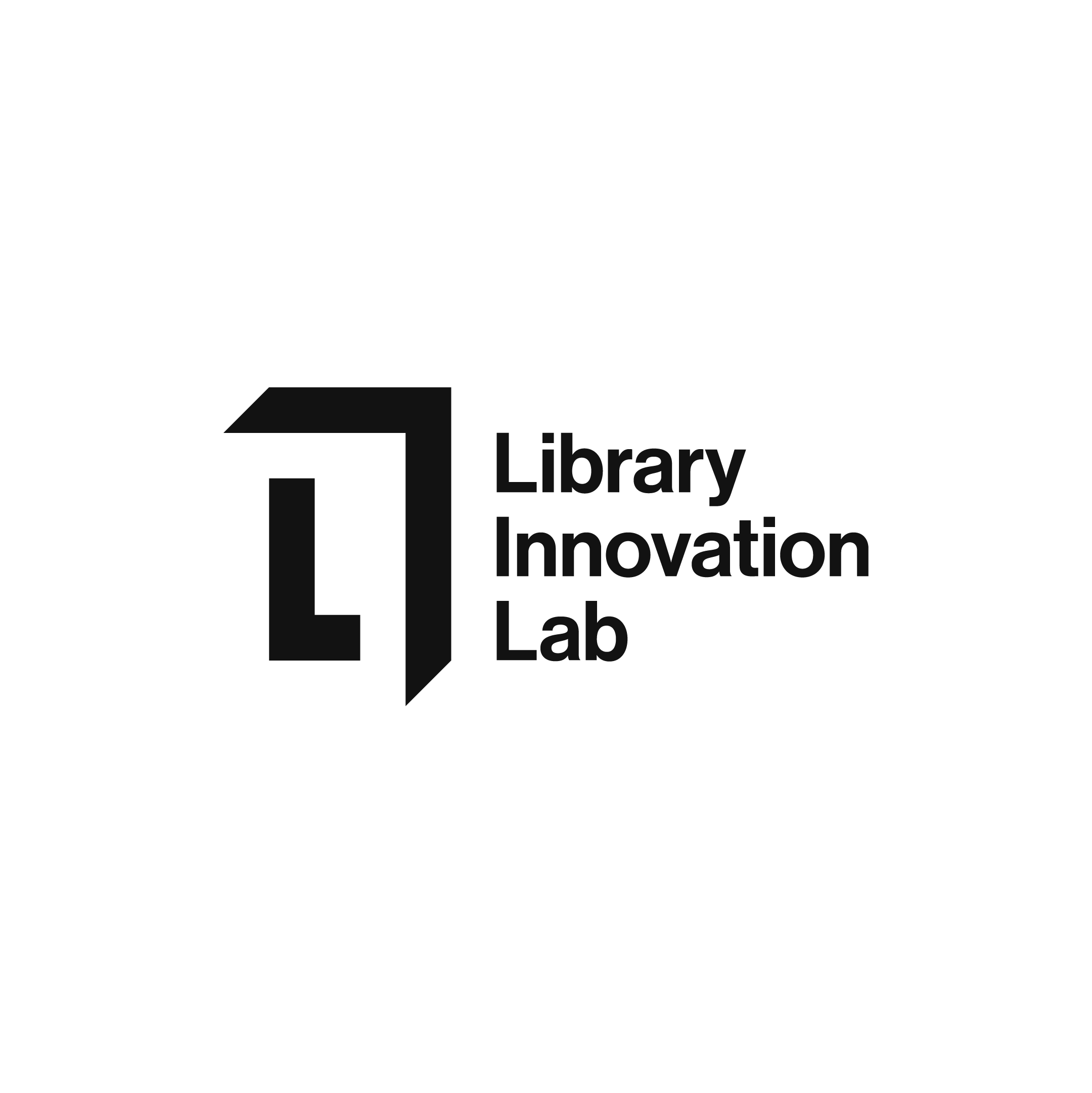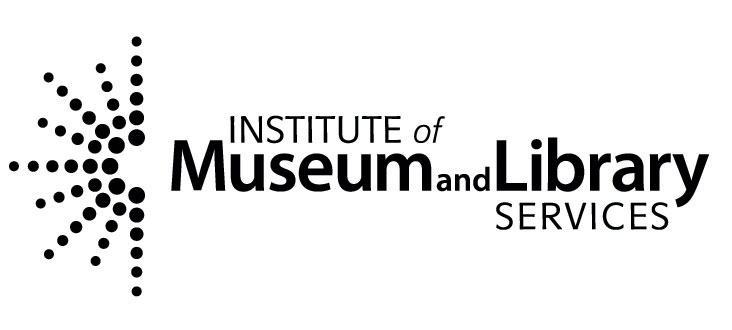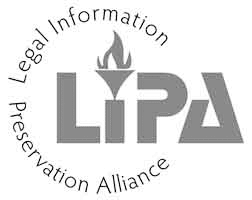Main Content
Websites change. Perma Links don’t.
Perma.cc helps scholars, journals, courts, and others create permanent records of the web sources they cite.
Perma.cc is simple, easy to use, and is built and supported by libraries.

Perma.cc is a simple way to preserve your links.
One good reason to use Perma.cc? How about 404?
Websites change, go away, and get taken down. When linked citations lead to broken, blank, altered, or even malicious pages, that’s called link rot.
Link rot affects everyone who cites links
Over 50% of cited links in Supreme Court opinions no longer point to the intended page. Roughly 70% of cited links in academic legal journals and 20% of all science, technology and medicine articles suffer from link rot.
Articles and studies
- Perma: Scoping and Addressing the Problem of Link and Reference Rot in Legal Citations (Perma.cc archive) The Harvard Law Review, 2014
- The Cobweb (Perma.cc archive) The New Yorker, 2015
- Scholarly Context Not Found: One in Five Articles Suffers from Reference Rot (Perma.cc archive) PLOS One, 2014
Link rot destroys the integrity of your citations
Links start healthy. New citations have been vetted and verified.
After one year. After a year, over 20% of cited links may be dead or otherwise inaccessible.
After five years. After five years, the situation is much worse — over 50% of cited links can be affected.
As time goes on. Link rot is inevitable and rarely reversible. The longer the wait, the more likely a link will have rotted.
Data taken from “Perma: Scoping and Addressing the Problem of Link and Reference Rot in Legal Citations,” Jonathan Zittrain, Kendra Albert & Lawrence Lessig. Harvard Law Review. March 17, 2014.
Meet the Perma Link.
A Perma Link is a reliable, unbreakable link to an unalterable record of any page you’ve cited. It’s a time capsule for a web page, which your readers can easily access.
We’re committed to preservation
Websites change, go away, and get taken down. When they do, linked citations can lead to broken, blank, unintentional, or even malicious pages. This decay is called “link rot.” Perma.cc helps scholars, journals and courts prevent link rot by creating permanent, reliable, unalterable links to the online sources cited in their work.
All about Perma LinksFrequently asked questions
Once you capture a Perma Link, neither its content nor its address will change, no matter what happens to the original link.
- Who runs Perma.cc?
- How long do Perma links last?
- Can I delete a Perma link?
- Is Perma.cc open source?
- What’s your privacy policy?
It’s easy to make and use a Perma Link.
Copy. Paste. Perma.
Step 1 Find the page you want to preserve. Copy its URL and open Perma.cc.
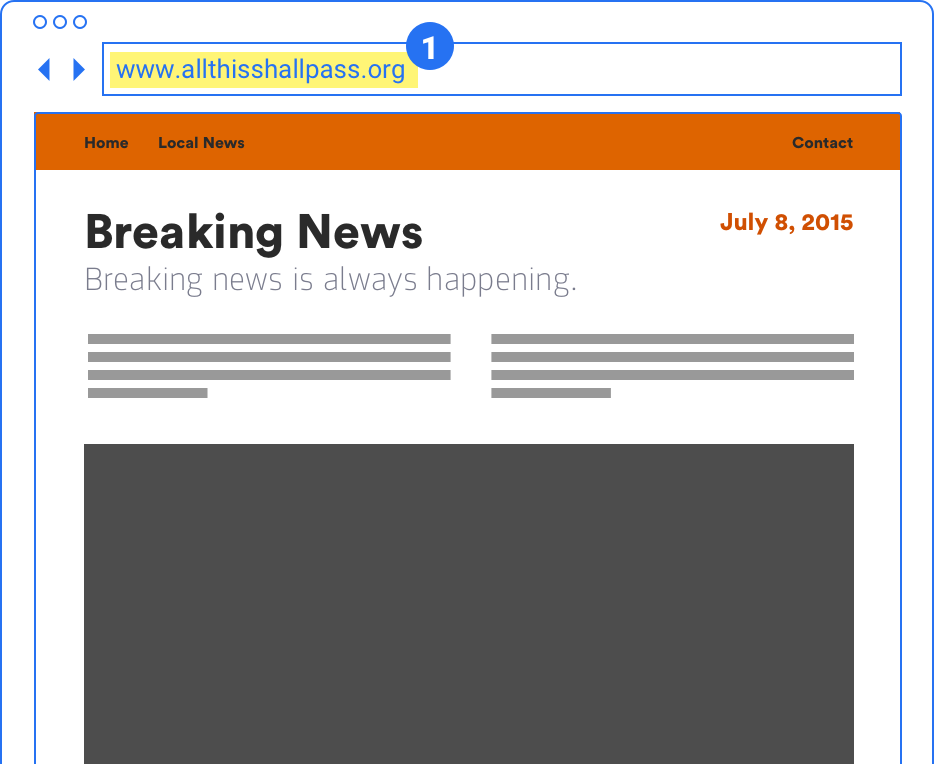
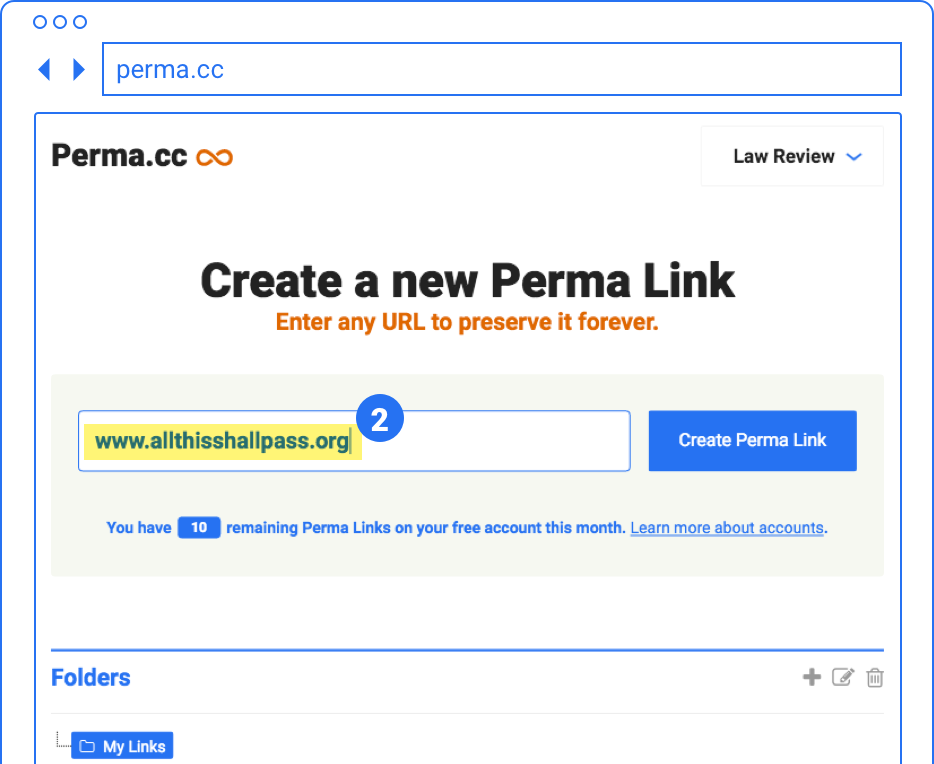
Step 2 Add your URL to Perma.cc. Select Create Perma Link and Perma.cc does the rest.
Step 3 Get your Perma Link. Perma.cc builds your new record in a matter of moments. When it’s finished, you have a chance to delete or annotate it.
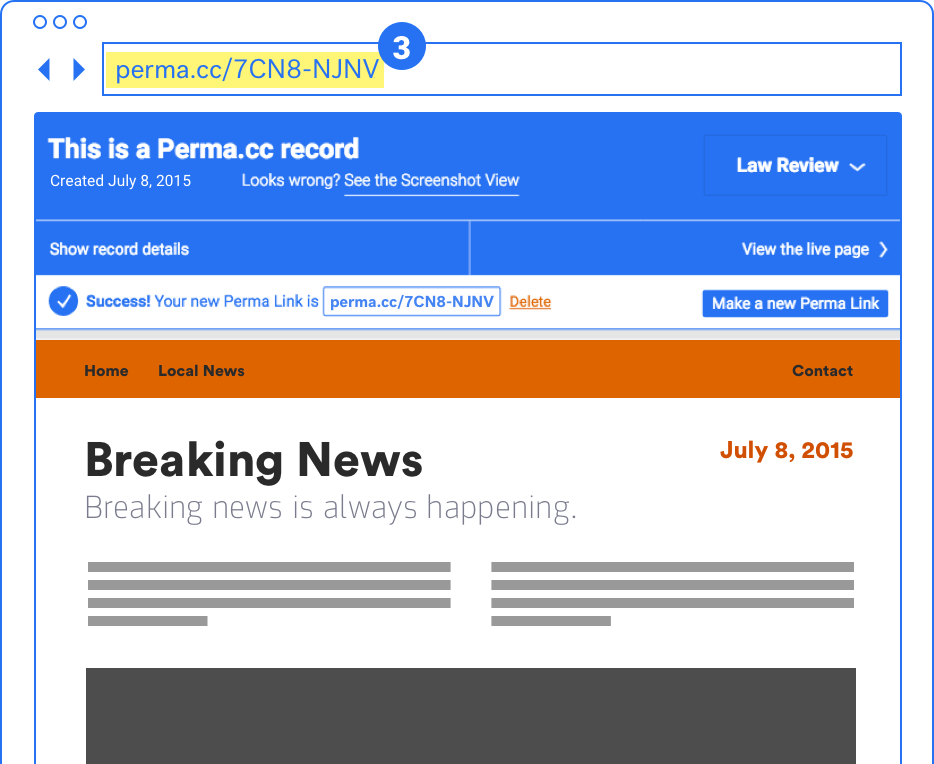
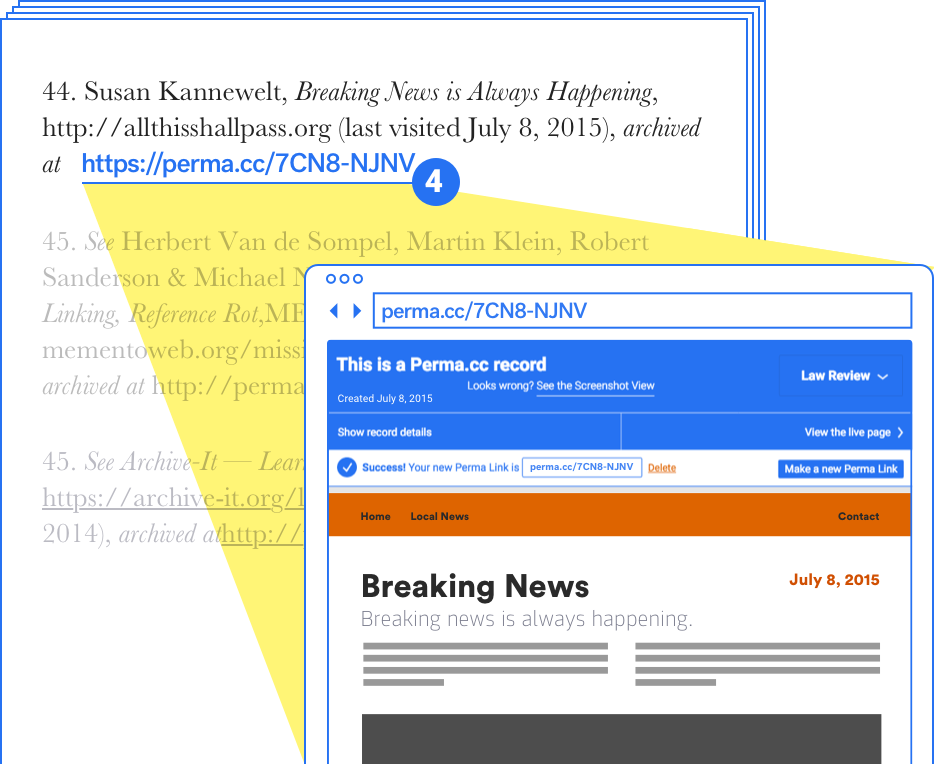
Step 4 Use the Perma Link in your citations. Use your Perma Link as you would the original cited URL. Your citation is safe from link rot — it will never change or break.
Built to last.
Libraries are in the forever business. We’re committed to preserving your digital records to the same standards that we preserve physical records. That’s why over 150 journals, courts, and universities trust us with their citations.
Articles and awards
- Webby award winner: Best Law Website (Perma.cc archive) 2015
- Cooking up a solution to link rot (Perma.cc archive) Law Library of Congress Blog, 2015
- The Problem with URLs in Legal Marketing (Perma.cc archive) BloombergBNA Big Law Business, 2015
- Can the Internet Be Archived? (Perma.cc archive) The New Yorker, 2015
Sign up
It only takes a minute to sign up with Perma.cc. Select your organization type and get started.
Libraries. Libraries play a critical role in powering and supporting Perma.cc.
Perma.cc for librariesCourts. Courts demand long-term reliability from the links in their decisions.
Perma.cc for courtsOther organizations. There are wide-ranging applications for Perma.cc tools.
Perma.cc for other orgsIndividuals. Anyone can register a free account and start creating Perma Links.
Perma.cc for individualsInterested in developing with the Perma.cc API? Check out Perma.cc for developers.





